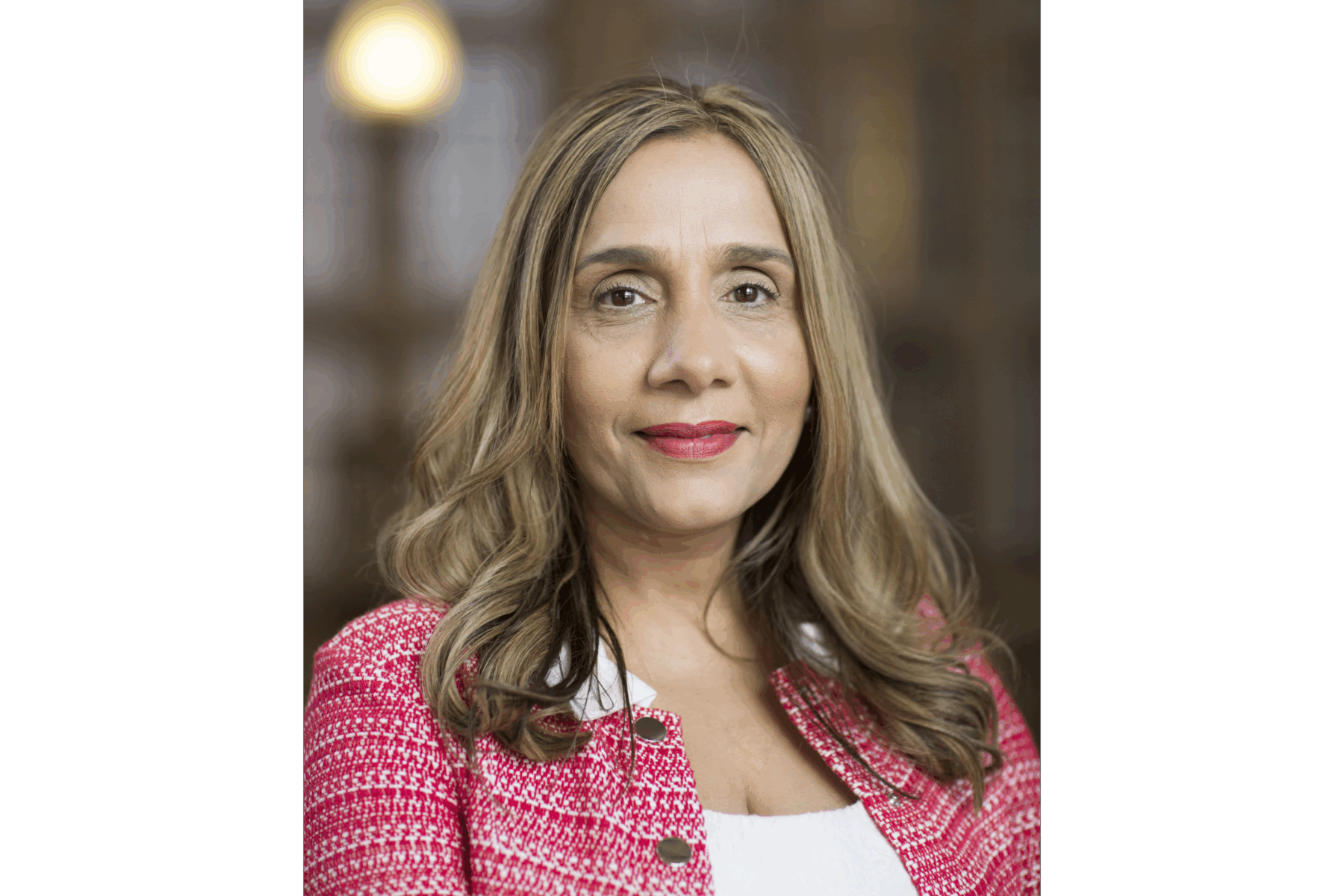Professor Kiran Trehan was elected to the Fellowship of the Academy in autumn 2025. She is Pro-Vice Chancellor for Enterprise, Partnerships and Engagement and Professor of Entrepreneurship at the University of York. She is an internationally recognised scholar in inclusive enterprise, policy, knowledge exchange, and social innovation, with a particular focus on the centrality of diversity and entrepreneurship to academic and policy discourse.

Professor Kiran TrehanFAcSS
Kiran’s commitment to knowledge exchange, engagement and impact has its roots in her own experiences facing structural disadvantage growing up as the daughter of a first-generation working-class migrant who arrived in the UK in the 1950s. As a result, her longstanding research interests centre on the key issues affecting minorities in business and communities and her research activities are distinguished by user engagement, innovation, and community orientation.
Kiran’s work has been influential in shaping national and European policy including the OECD, as well regional communities. Her research has increased understanding of how engagement can generate sustainable change, and has resulted in the development of evidenced-based tools to ensure research impact changes the way we share knowledge to facilitate purposeful and beneficial change.
Why do the social sciences matter?
The social sciences are fundamental to understanding and shaping the world we live in. They enable us to explore the systems, relationships, and power structures that define our societies. By applying rigorous evidence-based research to issues such as enterprise, diversity, policy learning and leadership, we can inform, enable and influence inclusive policies, transform institutions, and create opportunities for people and places often left behind. The social sciences give us the tools not just to be curious or to analyse the world – but to change it for the better. In summary, the social sciences are agents of structural innovation.
What inspires you about your work?
“Forget your perfect offering. There is a crack, a crack in everything. That’s how the light gets in…” – Leonard Cohen
These song lyrics remind me that it is imperfections that enable us, as social scientists, to push boundaries and expand our collective imagination of what is possible. I am inspired by the potential of collaboration, through engaged scholarship, to bring together communities, policymakers, businesses, and academics to tackle entrenched inequalities and unlock inclusive growth. My work thrives at the intersection of research and practice, turning ideas into action that makes a tangible difference to communities. Seeing the impact of the social sciences in shaping fairer economies, civic innovation, and policy reform continually motivates me to push boundaries.
Social science is not a collection of perfect offerings; it’s about engaging in addressing pressing political, economic, cultural, and social challenges and revitalising our commitment to making a difference. It’s about finding light in the cracks, embracing imperfection, and continuously shaping and advancing the scholarly conversation from theory to practice. Crafting a future together that is not only reflective of our past but also unflinchingly progressive, ensuring that the dialogue we nurture remains relevant, impactful, and ever evolving.
What is the most important issue for social science to tackle?
For me, the most pressing challenge is addressing structural inequality in all its forms. Whether through economic disparities, unequal access to opportunity, or underrepresentation in leadership, these issues undermine social cohesion and limit collective potential. The social sciences must lead the way in developing solutions that are not only innovative but also inclusive, ensuring that diverse voices and experiences shape the future of our institutions, economies, and societies.
What does being a Fellow of the Academy of Social Sciences mean to you?
Being elected a Fellow is very special honour and comes with responsibility. It represents recognition of the collective effort to advance knowledge, influence policy, and demonstrate the power of social sciences in addressing society’s greatest challenges. It also provides a platform to collaborate with fellow scholars and practitioners, amplifying our shared commitment to social justice, civic engagement, and transformative innovation across local, national, and international contexts.